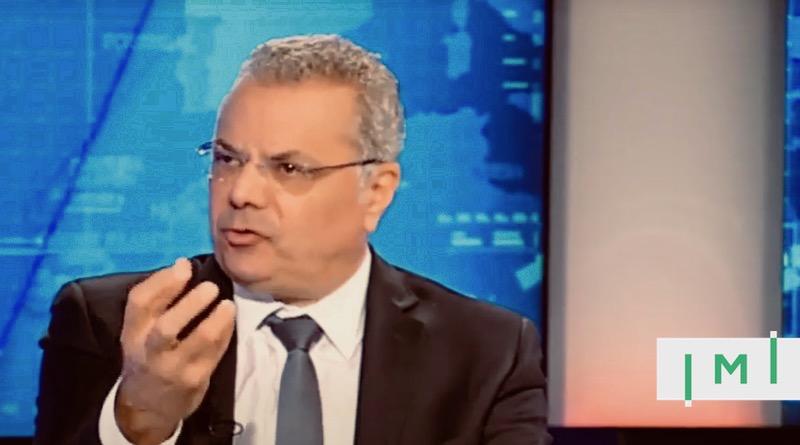Cyprus’ Spat With Al-Jazeera Takes on Geopolitical Overtones
On August 23rd, Al Jazeera published the first in a series of reports on the Cyprus CIP, based on a list of 1,400 citizenship applications the network said had been leaked to them earlier this summer. The “Cyprus Papers” branded the Mediterranean citizenship program as an underpass used by criminals to escape justice in their home countries. The report and attendant videos insinuated that not only were Cypriot authorities aware that international fugitives participated in their program but also that they did not mind as long as they were paid.
The response from Cypriot politicians and newspaper editors was swift and denunciatory.
“For the last 24 hours, we have been witnessing an orchestrated effort by the Al Jazeera network, which, after succeeding in securing secret documents of the Republic of Cyprus, is attacking our country through distortion, deception, and impressions,” said Nicos Nouris, Minister of the Interior, in a public address on August 25th, according to Cyprus Mail.
“Investigative journalism is one thing, which we respect, but it is something completely different […] propaganda that deliberately aims to hit the country politically and economically.”
He went on to remind the public of the most crucial part of information omitted from the report saying “It is well known that the Republic of Cyprus has made successive changes to improve the citizenship-by-investment program, most importantly the recent vote by the House of Representatives, regulations which ensure transparency, credibility, and continuous control both before submitting an application and after obtaining Cypriot passport.”
Met the criteria as they were at the time
Implicit in the successive program reforms Cyprus has enacted in the last four years is an admission that the regulations that preceded those reforms had been found wanting. Cypriot authorities and media alike are reacting to what they consider an injustice commited by Al-Jazeera; pointing out procedural weaknesses long-since acknowledged and dealt with.
“All of the persons in question, for whom we will avoid naming for obvious reasons, at the time of submission of their applications, met the criteria and were holders of clean criminal records in their countries of origin and countries of residence,” continued Nouris, who also explained that nothing warranting a refusal of the applicants in question had been uncovered during the checks by the competent state security services at the time, nor by Interpol checks.
While it’s common for CIPs to bar so-called PEPs (Politically Exposed Persons) from applying, Cyprus actually didn’t preclude political office-holders from applying to its citizenship program until the 25th of July 2019, when the Council of Ministers decided to exclude such persons. The ongoing debacle is a reminder, perhaps, of why such policies are considered wise.
Questions of revocation are now straightforward
Al Jazeera further claimed the EU was eyeing legal action against Cyprus over the matter, citing an interview with the European Commissioner for Justice, Didier Reynders, who had said he was seeking to “analyze if it is possible in the legal framework that we have now to start an infringement proceeding or to come with a legislative proposal.”
Reynders added that it was now up to the Cypriot justice system to “analyze the situation, and if it is possible for the Cypriot authorities to revoke the nationality.” Following the most recent round of program amendements, the revocation of citizenships in cases such as those raised in the report is perfectly possible, though neither the network’s nor Reynders’s comments reflect this crucial detail.
As one Cypriot attorney explained to IMI: “The current legislation (as amended) provides in a clear way the grounds and the procedure under which the citizenship might be revoked (by virtue of article 113 of the Civil Registry Law). In particular, the citizenship can be revoked if the naturalized citizen is sentenced to imprisonment for a serious criminal offense or if he/she is sought by EUROPOL or INTERPOL for a serious criminal offense subject to imprisonment of 5 years or more or if he/she is subject to sanctions or if it is found that he/she is repeatedly not complying with the CIP criteria and conditions, within a period of 10 years following the naturalization.”
In an open letter to Commissioner Reynders, the editor of Cyprus Mail addressed the Commissioner’s comments regarding the possibility of legal action:
- “Claims that passports were awarded to criminals are almost entirely false – several mistakes were made, but they can be counted on the fingers of one hand;
- Many of the so-called ‘criminals’ were in fact subject to prosecution long after Cyprus was considering their applications for citizenship;
- A number of the so-called ‘criminals’ have been refused extradition as the cases against them are parlous – one is actually suing the US government for its placing of sanctions.
- Some are simply executives at companies which were subject to sanctions – there was no individual allegation against them personally;
- A large number of these allegations are based on charges by systems of justice that are politically biased, at least in the view of the West.
- And a large number are simply politically exposed persons, who have committed no crime.”
Police investigating leak
Local police are investigating how the 1,400 documents were leaked to Al Jazeera, a breach that has been known to Cypriot authorities since June. So far, says a police spokesman, they have few clues. Questioned as to whether he had any suspicions, Minister Nouris said he did not, but noted that only three entities – the ministries of Interior and Finance, as well as the House of Representatives – would have had access to such files.
Various Cypriot media channels have gone public highlighting their dismay about the report’s tendency to omit certain factors, accusing the Qatari broadcaster of releasing the report as a smear campaign designed to harm the image of the Cypriot CBI.
In an interview with the Cyprus Mail, Giorgos Kentas, associate professor of International Politics and Governance at the University of Nicosia, said “the current Cypriot investment program has been carefully reformed with an eye to ensuring that candidates measure up to compliance standards. It is a fundamental pillar of the Cyprus economy, and it should be allowed to continue now that it has been tightened in criteria.”
Kentas is well aware of the less-stringent procedure the CBI had years back, yet believes Al Jazeera is using past mistakes to harm the Mediterranean Island’s global image.
“These past mistakes are being hauled out and used, for political reasons, to hurt Cyprus’ reputation […] that is what is happening with the current ‘Cyprus Papers’ campaign by Al Jazeera,” Kentas commented.
Hypothesizing about motives
The Cypriot media circulated several hypotheses as to the motives behind Al Jazeera’s report. Many news outlets highlighted that the Qatari government-owned broadcaster is subject to political control. Cyprus Mail questioned the network’s journalistic bona fides, quoting a report published by Der Spiegel stating that “Al-Jazeera takes a clear position in every country from which it reports — not based on journalistic priorities, but rather on the interests of the Foreign Ministry of Qatar.”
Many Cypriot media outlets focused on the interests of the Qatari government being tied directly to those of Turkey, another country housing a prominent CBI program, as the strong relationship between Qatar and Turkey is well documented. They hypothesized that the direct competition between Cyprus’ CBI program and that of Turkey (the due diligence of which is considered considerably less rigorous than that of Cyprus) may have been the main motive behind Al Jazeera’s report.
Concerns about what the political reflex will be
Justified or not, the unwelcome attention stirred up by the report is already having the destabilizing effect Minister Nouris believes to have been the purpose all along. House President Demetris Syllouris yesterday said he had written to President Nicos Anastasiades suggesting a meeting to discuss either suspending, ending, or further improving the program, based on the Al-Jazeera story. “If there are any doubts, there should be no programme,” he said.
Chairman of the Cyprus Property Owners Association, George Muskides, says the report – and the reaction from certain political quarters – could not have come at a worse time for Cyprus.
“The program was hit hard after the lockdown, and the government estimates that the number of naturalizations will shrink to 200 per year from about 800 in the previous two years,” he said adding that “we are talking about the scheme that pulled the Cyprus economy out of recession in 2013, breathing new life into the construction industry, and by default into the country’s economy.”
“What we in the real estate industry are hoping for, is that politicians will not turn the issue of unflattering reports on Cyprus’ CIP to kill the program that has given so much to the country.”
Ahmad Abbas is Director of Content Services at Investment Migration Insider and an 8-year veteran of the investment migration industry.



